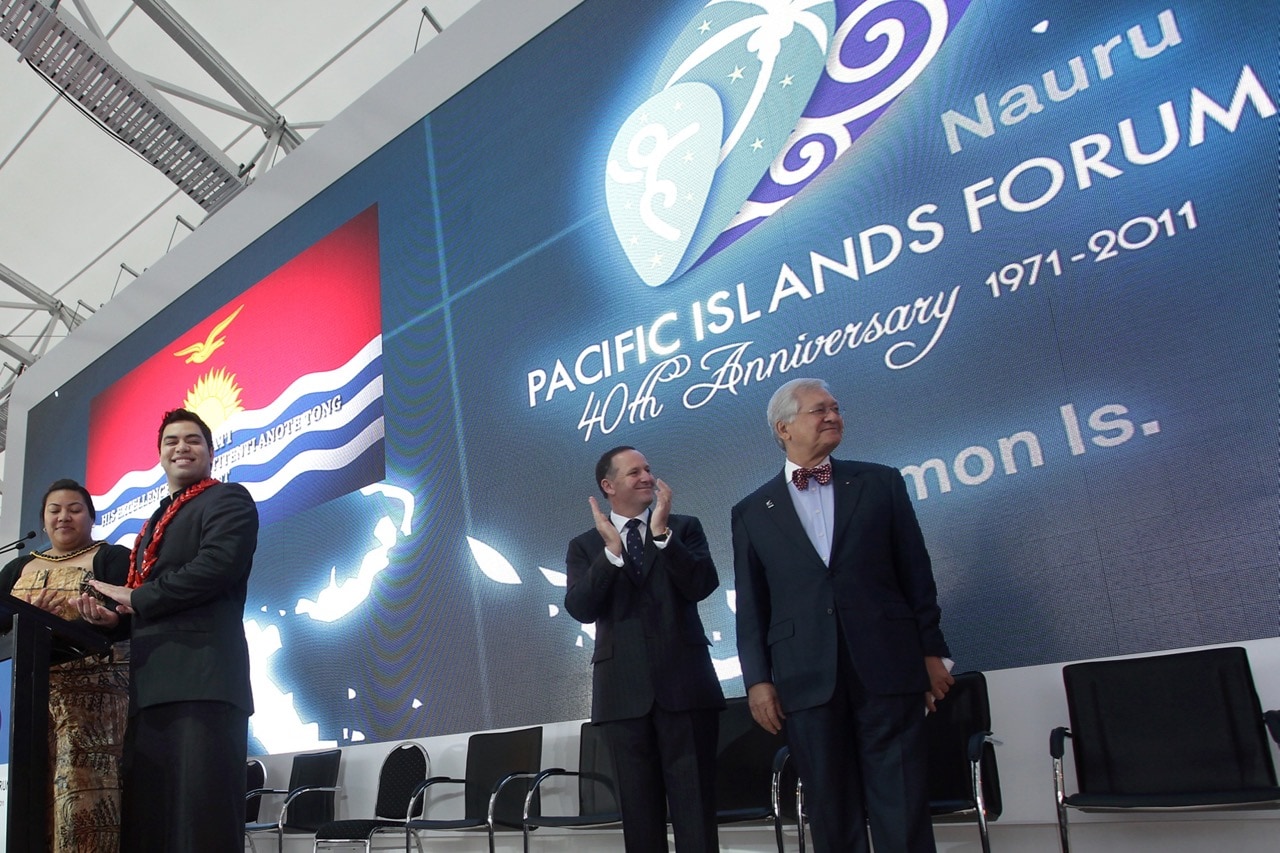(PINA/IFEX) – The following is an 18 February 2009 PINA statement: Freedom of Information key to rid corruption in the Nauru Government 18 FEBRUARY 2009 YAREN (Pacnews) – “Making information accessible to the public means that government is transparent and that the public is better able to hold government accountable.” Nauru’s President, Marcus Stephen MP, […]
(PINA/IFEX) – The following is an 18 February 2009 PINA statement:
Freedom of Information key to rid corruption in the Nauru Government
18 FEBRUARY 2009 YAREN (Pacnews) – “Making information accessible to the public means that government is transparent and that the public is better able to hold government accountable.”
Nauru’s President, Marcus Stephen MP, made this comment while delivering the keynote address at the opening of the Freedom of Information (FOI) Workshop in Nauru which opened on 17 February 2009.
The four-day workshop has been organised at the request of the Nauru Government, with support from the UNDP Pacific Centre, in collaboration with the Pacific Islands Forum Secretariat (PIFS) and the Commonwealth Human Rights Initiative (CHRI). It aims to raise awareness nationally about the value of the right to information, and provide technical advice on the principles that should underpin any right to information legislative regime.
A major aspect of President Stephen’s reform programme is to eradicate the corruption at all levels of government that has plagued Nauru in the past and to provide greater information to the public.
“It is important to note the role that freedom of information can play as an anti-corruption tool, and to bear in mind that if Nauru introduces FOI, we may be armed with an additional tool to help us in our quest to wipe out corruption in Nauru,” said Stephen. Whilst Nauru does not yet have a constitutional or legislative provision for freedom of information, they are currently considering introducing such provisions, making it consistent with a number of the goals that Nauru has set itself in the National Sustainable Development Strategy (NSDS).
The NSDS, which maps out a programme of reform and development for Nauru from 2005 to 2025, lists as its first goal the achievement of a stable, trustworthy, fiscally responsible government.
“The first priority within that goal is to achieve transparent and accountable government practices. Another component of the goal is an increased community role in governance,” said Stephen.
“Introducing the right to information may be one effective strategy for achieving these goals, because the right to information is principally about greater transparency and accountability in government, and giving the community a greater role in governance,” he added.
The President also called on the public to play its role in governance saying that the government should be a partnership between the public and those who serve the public.
“The people of Nauru need to play their part as informed citizens who have high expectations for government performance and transparency, and who try to see that their expectations are met by being informed and by scrutinizing those who serve them.”
“If comprehensive information about all government activities is made available to the public, the public itself is better able to scrutinize government activity, to identify corrupt practices, and to hold government to account,” said Stephen.
The Government Information Office, which the Stephen government has established already, provides regular updates to the public on all government activities.
Representatives from parliament, government officials, civil society, and the media are attending the workshop which is intended to build on the outcomes of the “Regional FOI Workshop for Pacific Policy-Makers”, conducted by PIFS and the UNDP Pacific Centre in Solomon Islands in July 2008.
The Nauru workshop ends on 19 February 2009.


